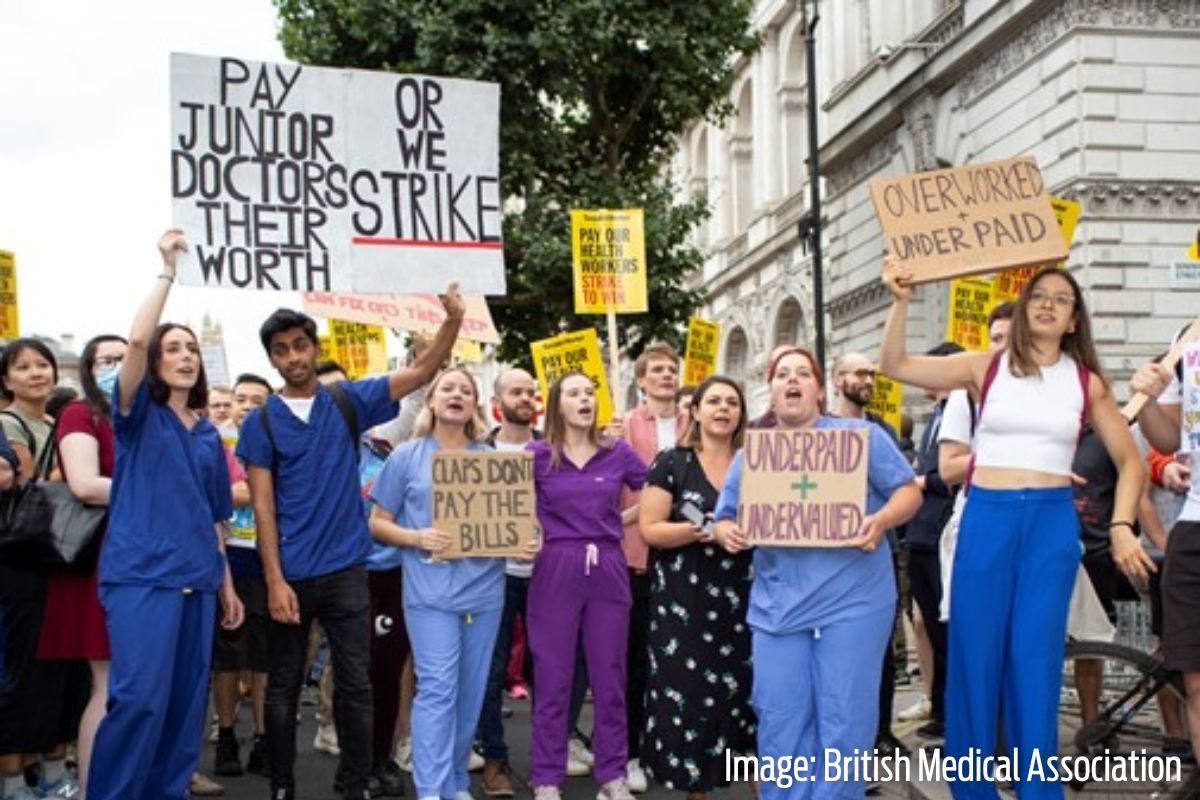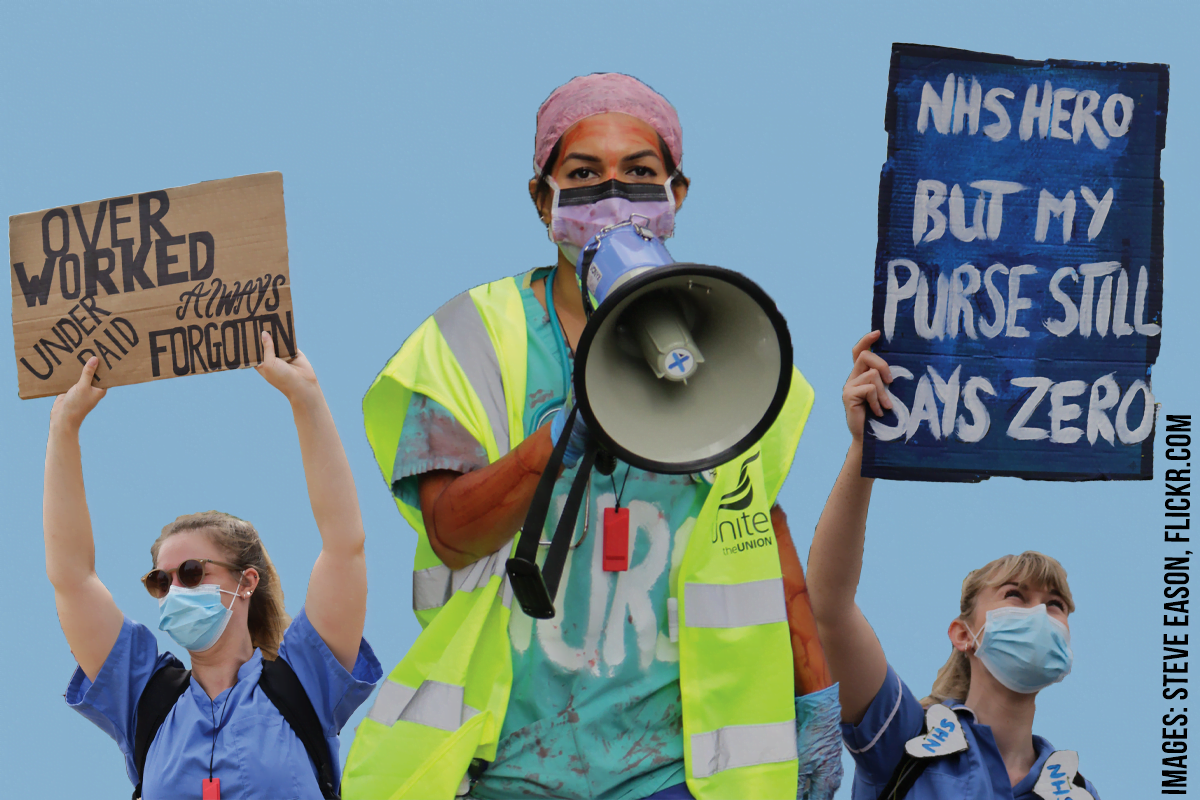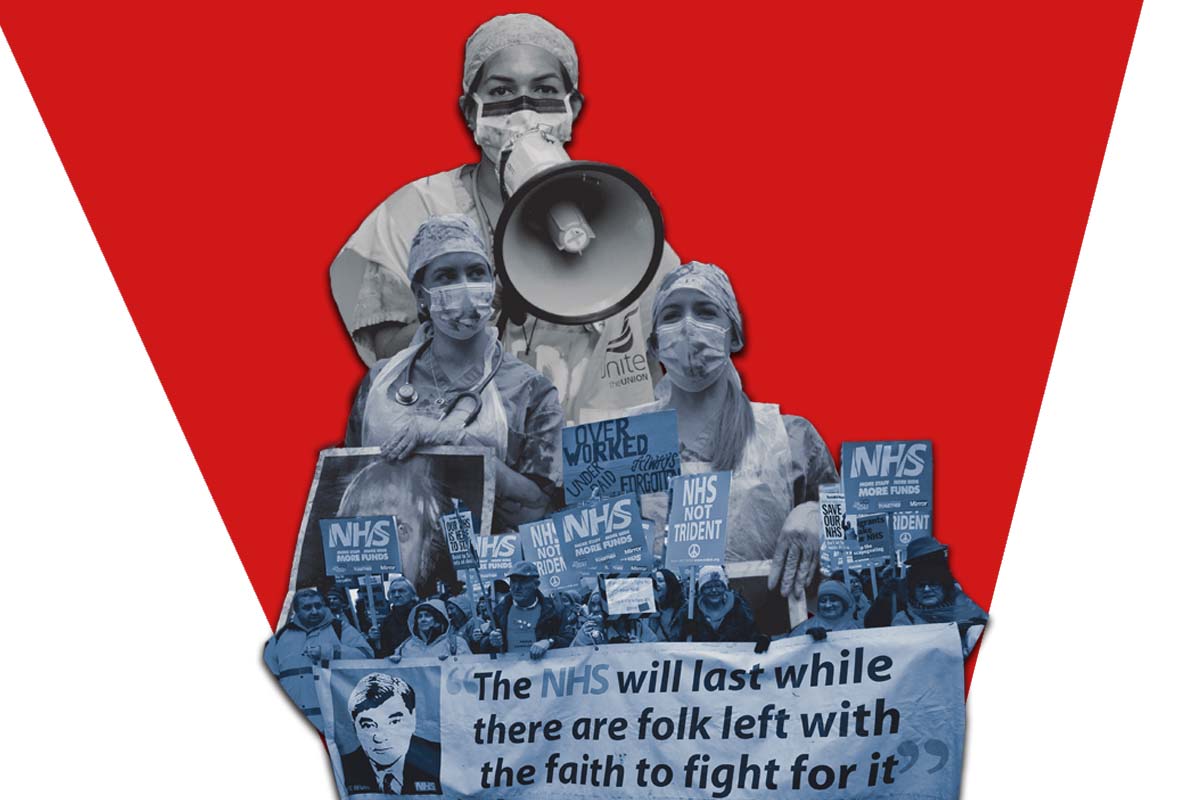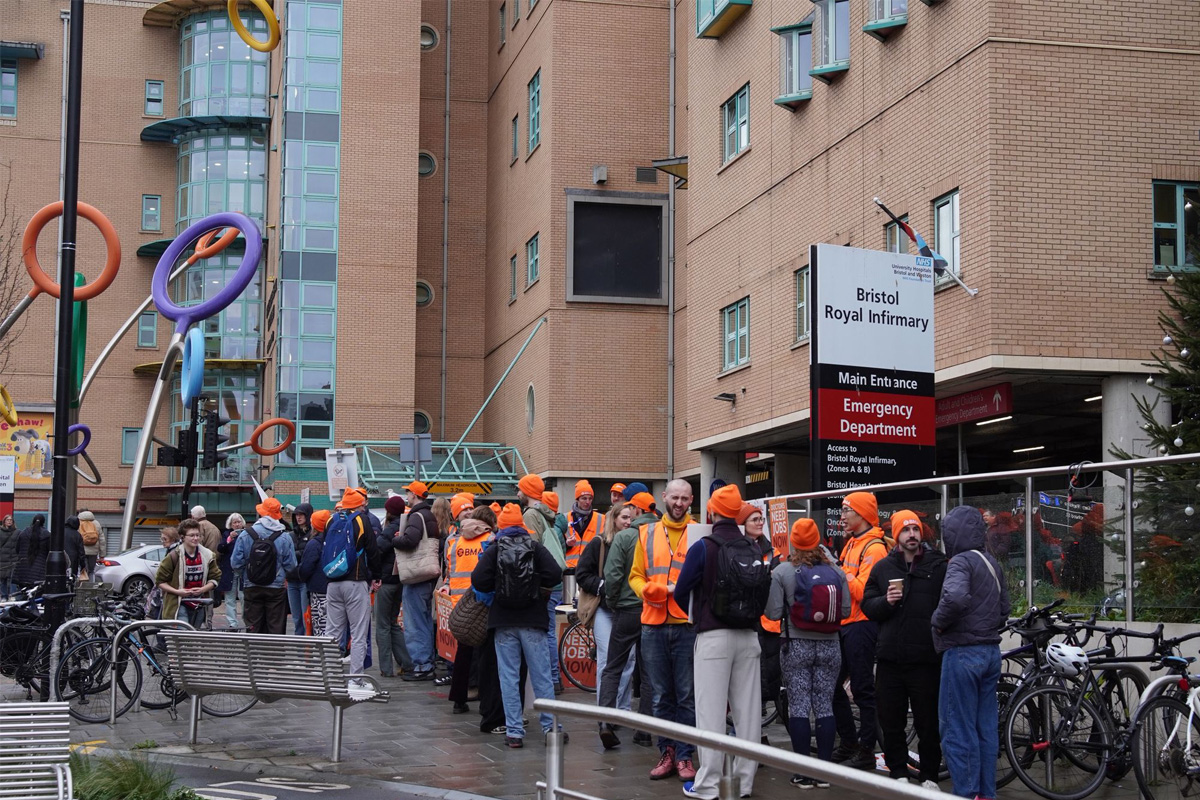While being hailed as ‘heroes’ during the pandemic, junior doctors are now earning 30% less than they were a decade ago.
But doctors are organising a fightback within the British Medical Association (BMA), through the ‘Doctors Vote’ campaign.
This is an important step forward in the struggle to save the NHS.
Under attack
The NHS has been under attack from private profiteers ever since the Thatcher government in the ‘80s. This process was accelerated after the 2008 crash, which heralded in a wave of austerity and privatisation. As always, when capitalism goes into crisis it is workers who are asked to pay for it.
This process culminated in the Tories attempting to force a humiliating contract upon junior doctors in 2016. This would’ve seen maximum workloads increase from 60 to 90 hours per week. This provoked thousands of junior doctors to come out on strike for the first time in British history.
Despite overwhelming public support for the strikes, the BMA leaders capitulated under pressure from the Tories and growing media hysteria, and agreed on a humiliating new deal.
Six years on, it is clear that working conditions and pay have only gotten worse. 58% of doctors report symptoms of burnout. No wonder there are 100,000 unfilled job vacancies within the NHS.
Doctors Vote

The Tories’ new pay deal for doctors amounts to a measly 2% rise per year. Yet inflation is set to increase to 10% in the months ahead. This means yearly pay, in real terms, will be cut by an estimated £2,172-4,002.
Furthermore, adjusted for inflation, a junior doctor in their first year earns £9,020 less per year than they would’ve done in 2008.
Doctors are therefore launching a fightback with the ‘Doctors Vote’ campaign in the BMA.
This aims to recruit BMA reps and field BMA councillors who are in favour of fighting for pay-restoration to pre-2008 levels.
Furthermore, activists are campaigning for sufficient resources to carry out industrial action if needed and a general democratisation of the union.
Incredibly proud to announce the list of pro-pay restoration candidates we’re supporting for the BMA Council elections.
Remember to rank all candidates, and return your ballot!https://t.co/Eoo0lwI3xN for more info pic.twitter.com/ekAbrqYKl4
— Doctors Vote (@Doctors_Vote) March 17, 2022
Increasing misery
As the crisis of capitalism deepens, workers across the labour movement are starting to transform their unions into fighting unions.
This process is even taking place within traditionally very conservative organisations like the BMA and the Royal College of Nurses. The 2016 junior doctors’ strike was an early expression of this.
The logic of the market is forcing even those from so-called ‘middle class’ professions onto the scrapheap, along with the rest of the working class, with increasing workloads, stress, and declining pay.
At the same time, this proletarianisation of conditions is leading to an increasing proletarianisation in terms of the fightback – with those in white-collar jobs now also turning to collective organisation and strike action to defend themselves.
Shift

While the NHS and its workers have been under prolonged attack from the Tories and bosses, the BMA has consistently dragged its heels when it comes to defending its members.
The BMA acts more like a professional body that safeguards the profession, rather than a fighting trade union. It’s not surprising then that they actively opposed the creation of the NHS, claiming that it would tarnish the integrity of the profession – in other words, that it would eat into the profits of the private medical industry.
The fresh layer of activists organising around the ‘Doctors Vote’ represents a sizable shift within the BMA. This layer has been drawn into struggle, and is identifying the need to transform their union from the ground up.
Poh Wang, a junior doctor elected to the BMA council as a Doctors Vote candidate, is not only calling for a 15% pay rise and a sliding scale of wages to match inflation, but for a complete democratisation of the union.
They call for the BMA to be: “A doctors’ trade union to fight for improved pay and conditions. Not a careerist treadmill for entry into politics.”
Wang also demands an opening of the books, noting that the BMA “earned £134m last year”. “Where is that money going?” they rightly ask. This shows a healthy instinct.
Next steps
In the space of a few months, the ‘Doctors Vote’ campaign has developed into a nationwide movement, encompassing thousands of doctors, all with zero help from the BMA.
Pay restoration is now firmly on the agenda, with 25 ‘Doctors Vote’ candidates recently elected to the BMA council, out of a total of 69 seats, with the campaign taking every medical student and junior doctor position available.
View this post on Instagram
Furthermore, at the recent Junior Doctors Conference, the campaign was able to mobilise members to vote for pay restoration to become official BMA policy; for more transparency within the union; and for resources to be built up for future industrial action.
These are further clear indications that we are in a period of increased militancy – not only within the BMA, but throughout the whole of the trade union movement.
Socialist fightback
With the deepening crisis of capitalism, conditions in the NHS will continue to get worse and worse – unless we fight back.
Already, nurses and other health workers are mobilising in a struggle for decent pay. Doctors must unite with these workers to transform the unions, and go on the offensive against the bosses and Tories.
All the private profiteers must be kicked out, replaced by a fully public healthcare system under the democratic control of doctors, nurses, and health workers. This should be accompanied by a mass recruitment drive led by the trade unions.
The wealth exists in society to properly fund the NHS – and much more. But it is in the wrong hands.
Only by expropriating the banks and billionaires, and putting this wealth to use as part of a socialist plan of production, can we save the NHS from the clutches of capitalism.






